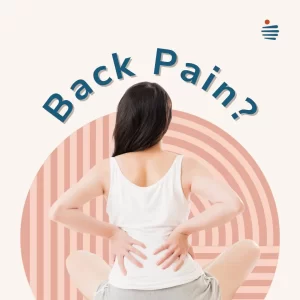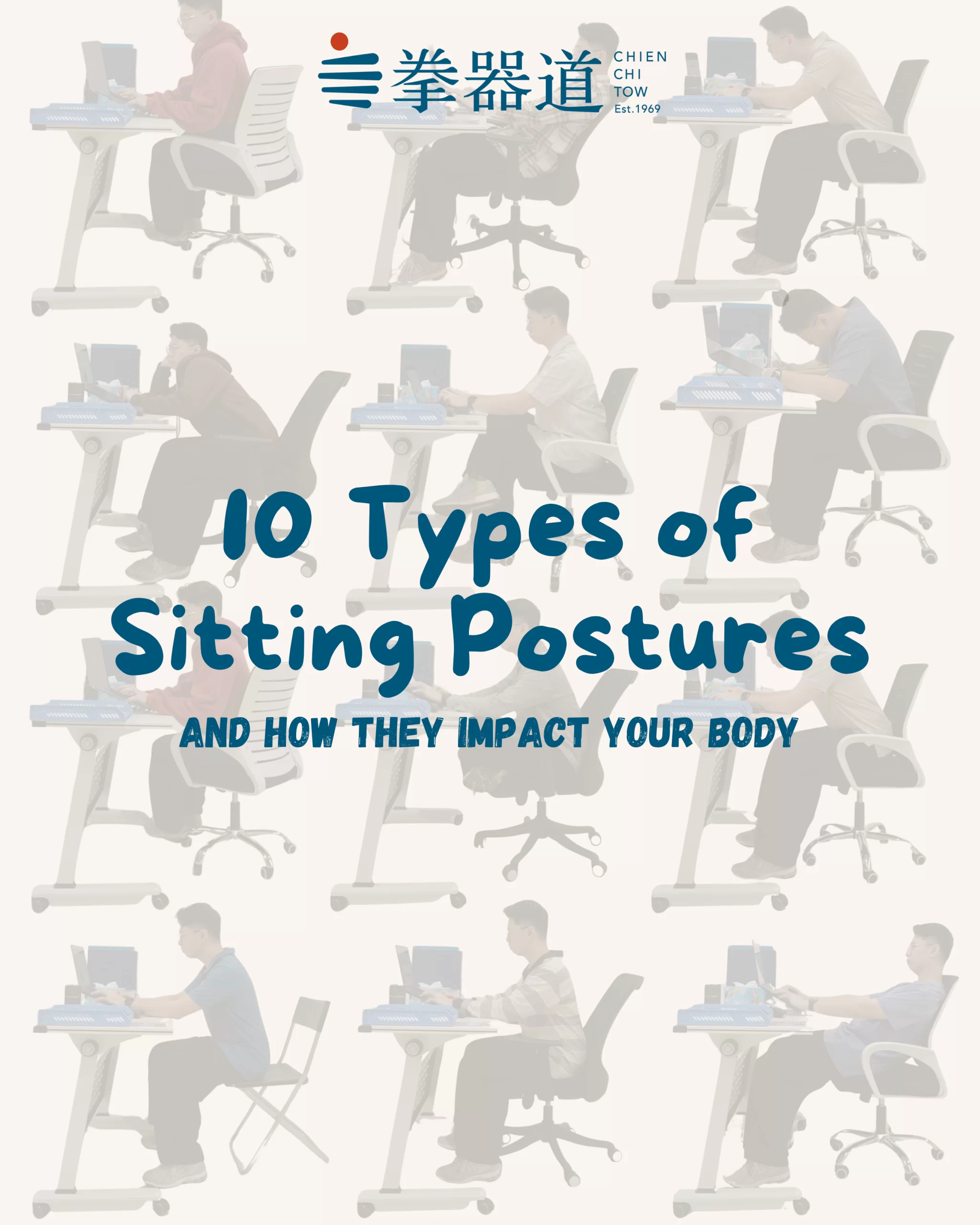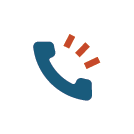Parenting is a rewarding journey, but it often comes with physical challenges, particularly lower back pain. This common ailment affects many parents due to the physical demands of childcare, such as lifting, carrying, and constant bending. Lower back pain can significantly impact a parent’s daily life, making it difficult to perform routine tasks and enjoy time with their children. This article will explore the causes of lower back pain in parents, how it affects daily life, the challenges in adjusting habits to prevent pain, practical ways to overcome it, the benefits of Traditional Chinese Medicine (TCM) Tuina massage, and stretches and exercises to relieve pain and strengthen muscles.
Causes of Lower Back Pain in Parents
Lower back pain in parents often stems from various activities and routines associated with childcare

Lifting and Carrying Children
Frequently lifting and carrying children, especially as they grow heavier, can strain the lower back muscles. Improper lifting techniques can exacerbate this strain.
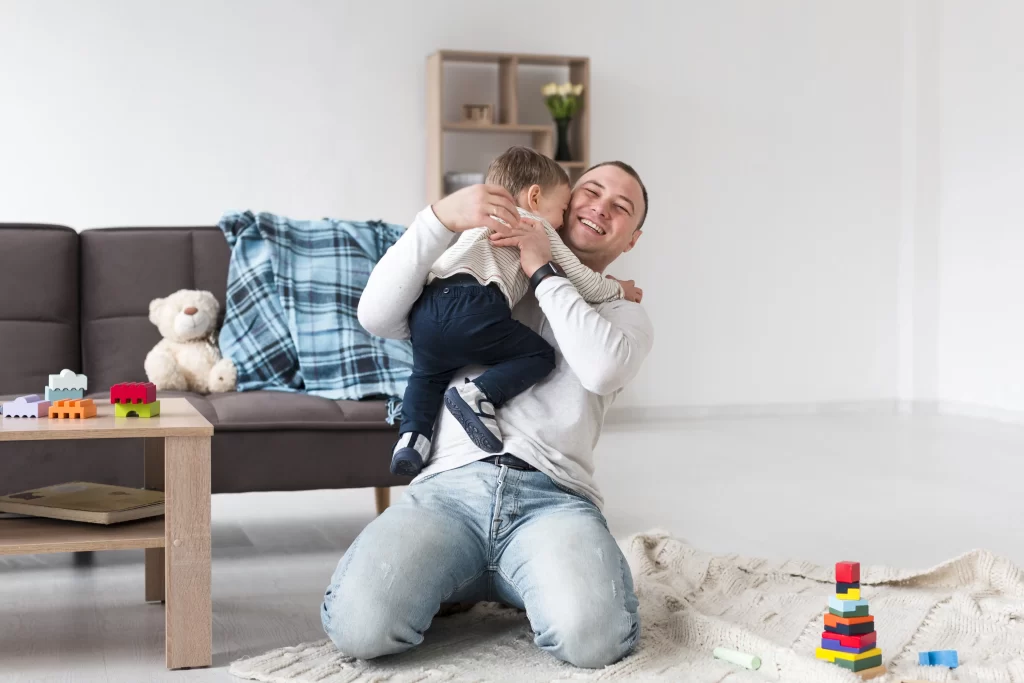
Bending Over
Constantly bending over to pick up toys, change diapers, and attend to children’s needs can lead to repetitive stress on the lower back.
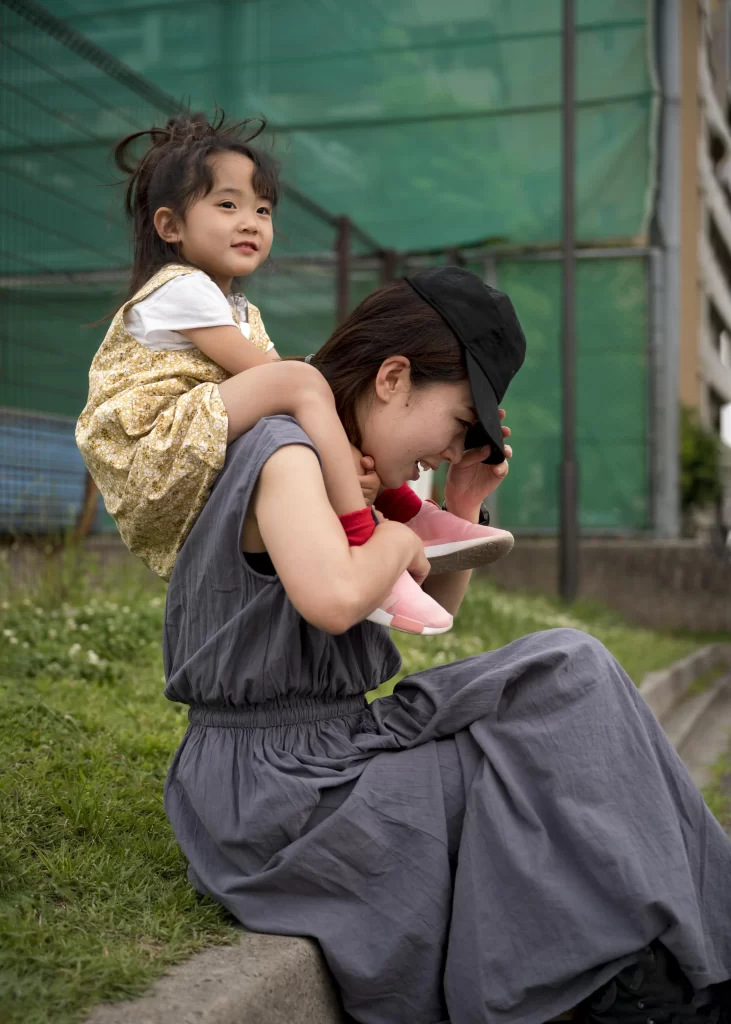
Poor Posture
Holding children on one hip or slouching while feeding or playing with them can cause imbalances and additional stress on the lower back.
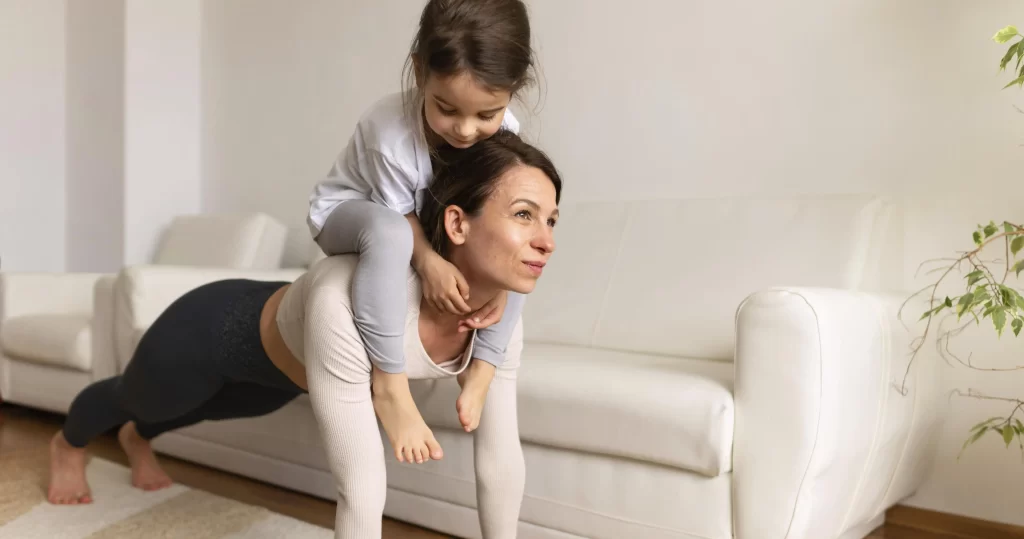
Lack of Core Strength
Weak core muscles can lead to poor support for the lower back, increasing the risk of pain and injury.
Impact on Daily Life
Lower back pain can significantly affect a parent’s ability to manage daily tasks and interact with their children. Here are some ways in which lower back pain impacts daily life
Limited Mobility
Pain can restrict movement, making it difficult to perform essential tasks like lifting, bending, and carrying. This can hinder a parent’s ability to care for their children and manage household responsibilities.
Decreased Energy Levels
Chronic pain can drain energy levels, leaving parents feeling fatigued and less capable of engaging in activities with their children. This can be directly seen in the energy level and level of interest in the activity they do.
Emotional Stress
Persistent lower back pain can lead to emotional stress, anxiety, and frustration. The constant discomfort can affect a parent’s mood and overall mental well-being.
Sleep Disruptions
Pain can interfere with sleep, making it difficult to get a restful night’s sleep. Poor sleep can further exacerbate pain and lead to a cycle of discomfort and fatigue. This vicious cycle will lead you to a downhill journey in your health and mental wellness.
Reduced Productivity
Pain can affect concentration and productivity, making it challenging to balance work, parenting, and other responsibilities. As you lose focus, you might make more mistakes in the things you do, and this may be concerning if you are handling critical or dangerous tasks that might cause injury to you or people in your surrounding.
Challenges
While most desire to be free from pain, adjusting habits to avoid lower back pain can be challenging for parents due to the nature of childcare activities. Here are some common obstacles
Ingrained Habits
Many parents have developed habits and routines that involve repetitive motions and awkward positions. Changing these habits requires conscious effort and consistency, which most people will have a hard time overcoming.
Child’s Needs
Children’s needs often take priority, and parents may find it challenging to modify their actions without compromising their ability to care for their children effectively. One common instance is the need for cuddling to sleep for children, which puts stress on the parent’s lower back and shoulder, but the need to put your child to sleep is being prioritized over the need to lessen the stress on your lower back and shoulder.
Lack of Knowledge
Parents may not be aware of proper techniques and practices to avoid pain, hence, poor techniques will lead to lower back pain. Education and awareness are crucial in adopting pain-preventive measures.
Ways to Overcome Lower Back Pain
Despite these challenges, there are practical ways parents can overcome lower back pain. Here are some strategies
Ergonomic Adjustments
Making ergonomic adjustments can help reduce strain and prevent pain. For example, using a baby carrier with proper support can distribute weight evenly and reduce back pain.
Proper Lifting Techniques
When lifting children or objects, parents should bend their knees and keep their back straight to avoid straining their lower back. Using the legs to lift, rather than the back, can help prevent injury.
Regular Breaks
Taking regular breaks to rest and stretch can help alleviate muscle tension and prevent pain. Parents should incorporate short breaks into their daily routines to reduce the risk of overuse injuries.
Strengthening Exercises
Strengthening exercises can improve muscle resilience and reduce the risk of pain. Focusing on core, back, and leg exercises can enhance overall strength and stability.
Stretching
Regular stretching can improve flexibility and reduce muscle tension. Incorporating stretching into daily routines can help prevent and alleviate pain.
TCM Tuina Massage For Lower Back Pain
Traditional Chinese Medicine (TCM) Tuina massage is a therapeutic form of massage that involves various techniques to stimulate acupuncture points and meridians. Tuina can play a significant role in relieving lower back pain for parents by promoting the flow of qi (vital energy) and blood, reducing tension, and restoring balance.
Relieving Muscle Tension
Tuina techniques target specific muscles and soft tissues to release tension and knots. By applying pressure and manipulation, tuina helps to relax the muscles and improve circulation, which can alleviate pain.
Improving Circulation
By stimulating the flow of qi and blood, tuina enhances circulation throughout the body. This not only helps to alleviate pain but also promotes overall health and healing.
Reducing Stress and Anxiety
Tuina can have a calming effect on the nervous system, helping to reduce stress and anxiety. The gentle, rhythmic movements induce relaxation and release endorphins, which are natural painkillers.
Enhancing Flexibility and Mobility
Tuina techniques involve stretching and mobilization of joints, which can improve flexibility and range of motion. This is particularly beneficial for parents experiencing joint stiffness and chronic pain.
Neck and Shoulder Stretch with Acupoint Stimulation
In addition to Tuina massage, incorporating stretches and exercises into daily routines can help parents manage and prevent lower back pain. You can try out the exercise below to how your neck and shoulder relieve
Addressing Area
Neck and Shoulder
Acupoint
井穴 (Jian Jing Acupoint) – Located midway between the base of the neck and the outer shoulder.
肾腧穴 (Shen Shu Acupoint)- The point is located on the lower back, in the region of the lumbar spine.
How to Do it
- Stand with your back straight.
- In a single swinging motion, with your right palm flatly open, tap your left 肩井穴, and with your left fist, tap your right 肾腧穴.
- Alternate the swings to tap your right 肩井穴 with your left palm and left 肾腧穴 with your right fist.
Parenting comes with its unique set of challenges, and lower back pain is a common issue that many parents face. Understanding the causes of lower back pain, its impact on daily life, and the challenges associated with lower back pain management can help parents take proactive steps to manage and overcome discomfort. By incorporating ergonomic adjustments, proper techniques, regular breaks, strengthening exercises, and stretching into their routines, parents can alleviate pain and improve their overall well-being.
Traditional Chinese Medicine (TCM) Tuina massage offers a holistic approach to pain management and relief by addressing the root causes and promoting the flow of qi and blood. Combining Tuina with practical stretches and exercises can provide a comprehensive solution to managing lower back pain, allowing parents to enjoy a healthier, more comfortable life with their children. Consider consulting a qualified TCM practitioner to learn more about how Tuina can benefit you and take proactive steps towards a pain-free life.

